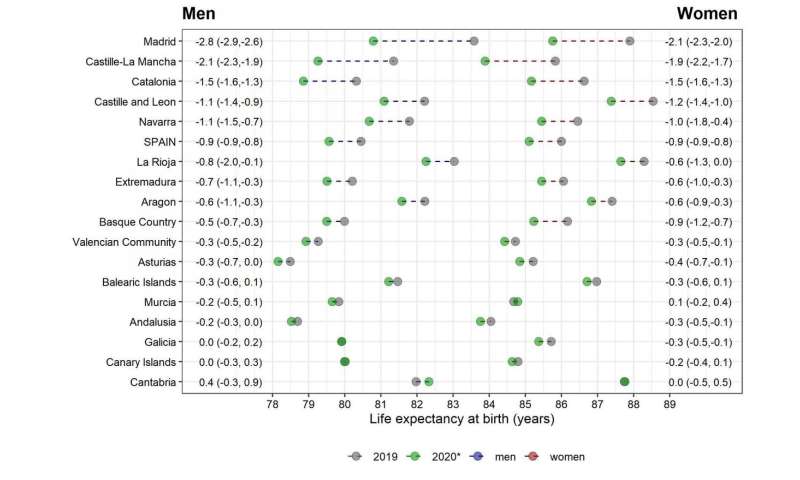
Spain’s annual life expectancy at birth dropped by 0.9 years between 2019 and the annual period up until July 2020 due to the COVID-19 pandemic, according to a new study published this week in the open-access journal PLOS ONE by Sergi Trias-Llimos of the Center for Demographic Studies, Spain, and colleagues.
The COVID-19 pandemic is causing substantial increases in mortality in populations worldwide, and Spain was one of the most affected countries in the spring of 2020. Life expectancy is an easy to interpret, standard indicator in mortality patterns. However, few studies assessing the impact of the pandemic on mortality to date have reported life expectancy estimates.
In the new study, researchers used daily death count data from the Spanish Daily Mortality Monitoring System (MoMo) as well as information on death, population and demographic information from the Spanish National Statistics Institute. The team estimated weekly and annual life expectancies at birth for 2019 and the annual period up until July 2020.
The weekly life expectancies at birth in Spain were lower in weeks 11 through 20 of 2020—spanning early March through early May—compared to the same weeks in 2019. This drop was particularly significant in weeks 13 and 14—March 23 through April 5—with national declines in weekly life expectancy ranging from 6.1 to 7.6 years and regional weekly declines of up to 15 years in Madrid.
Likewise, the annual life expectancy for the country as a whole declined by 0.9 years between 2019 and the annual period up until July 2020, for both men and women. Regionally, this decline in life expectancy was as high as 2.8 years (95% CI 2.6-2.9) among men in Madrid. The authors state that these findings provide an intuitive measure of the health impact of the pandemic throughout Spain.
Source: Read Full Article
